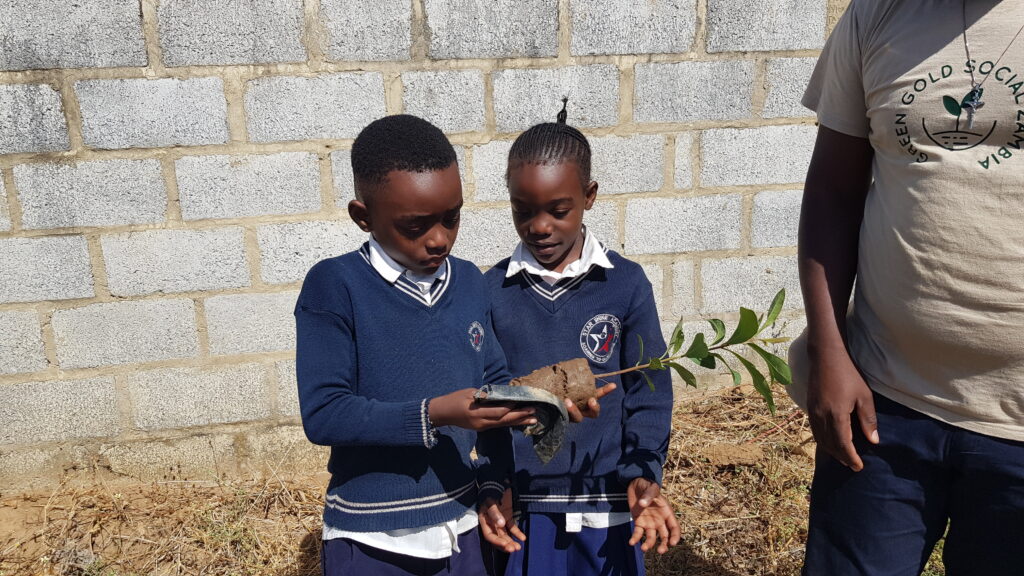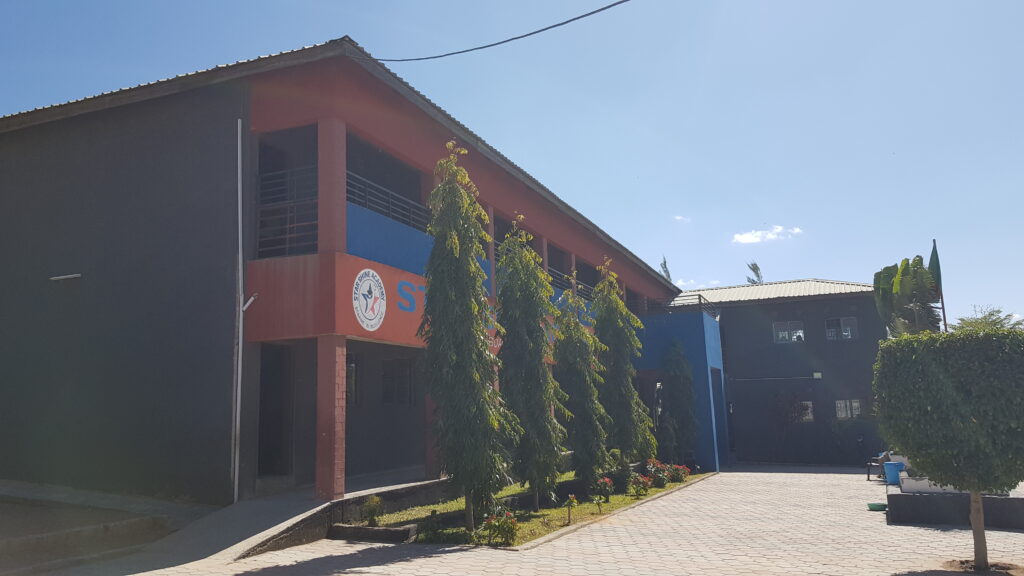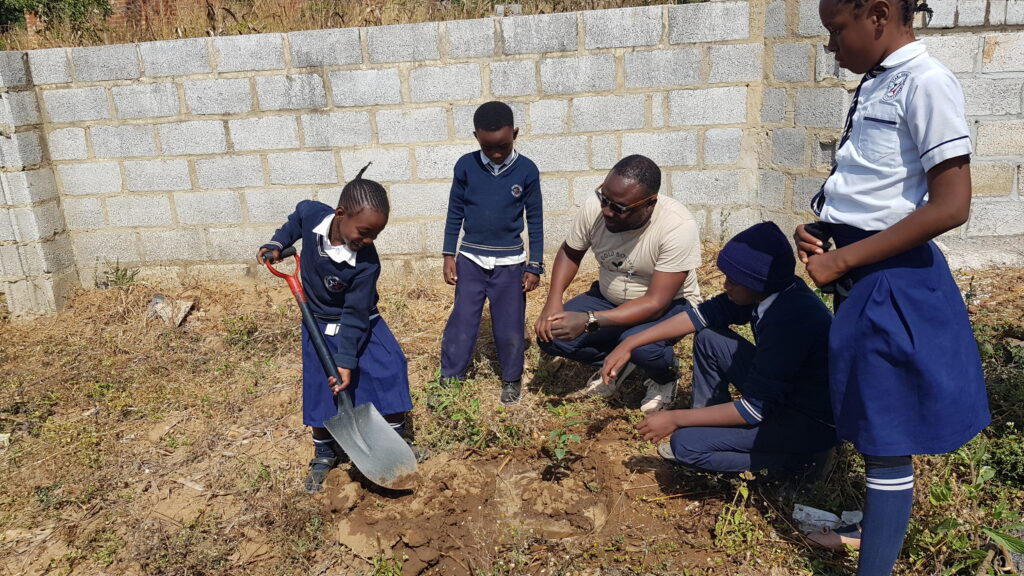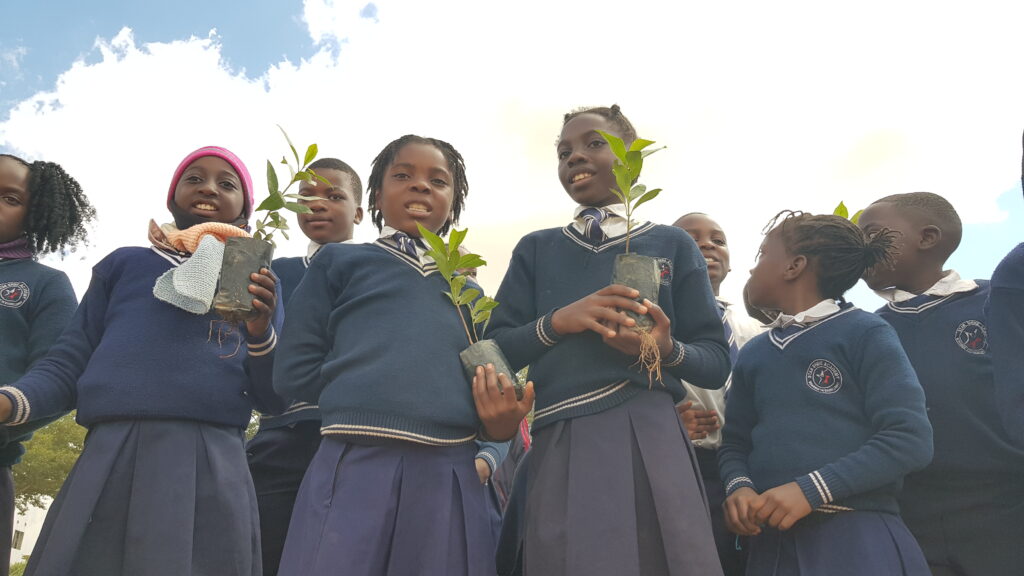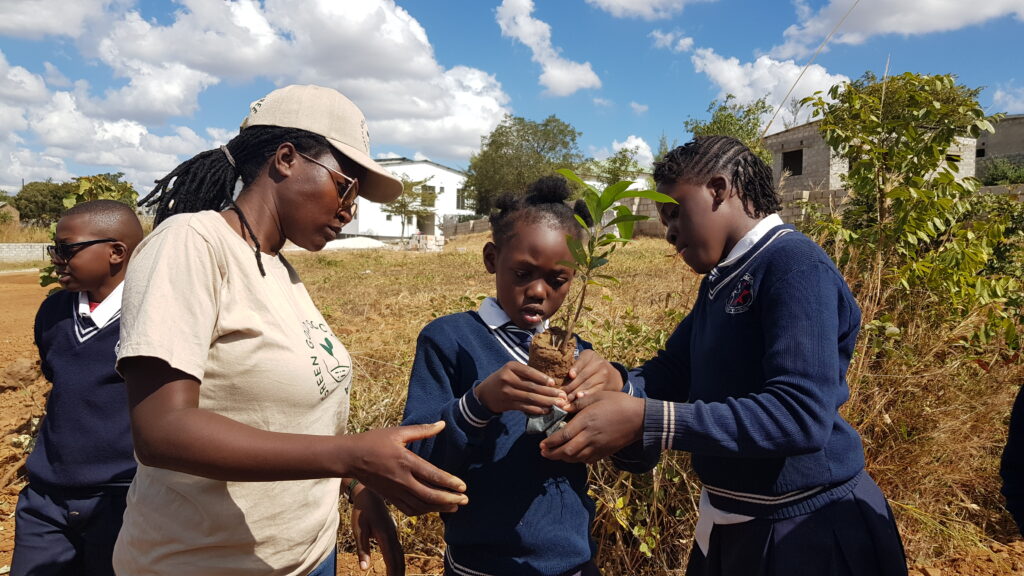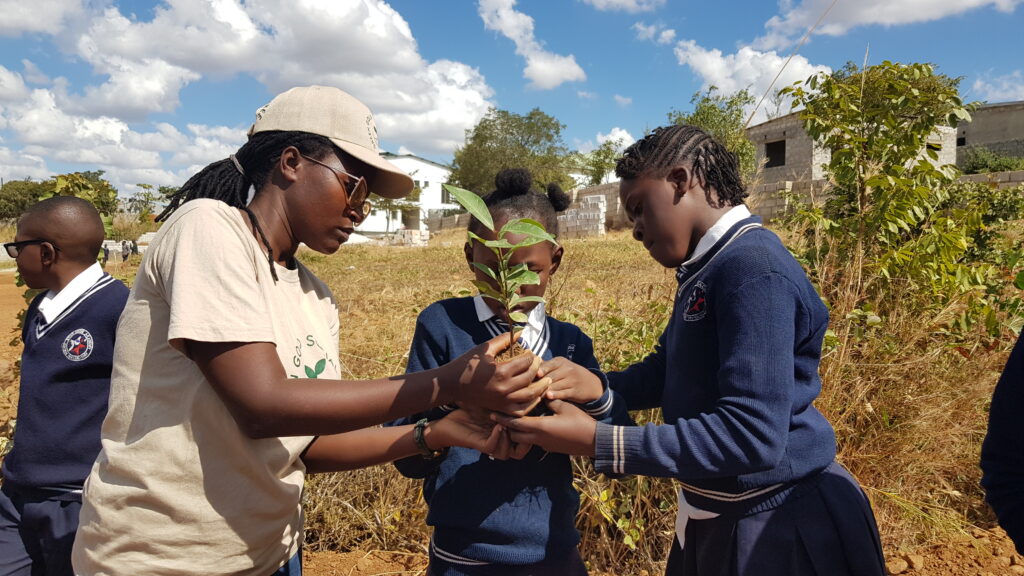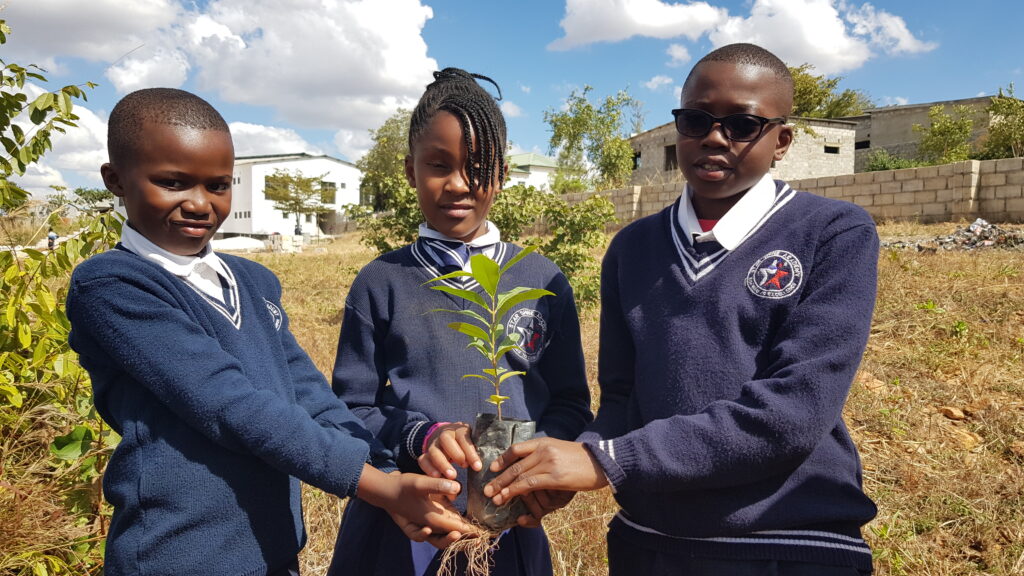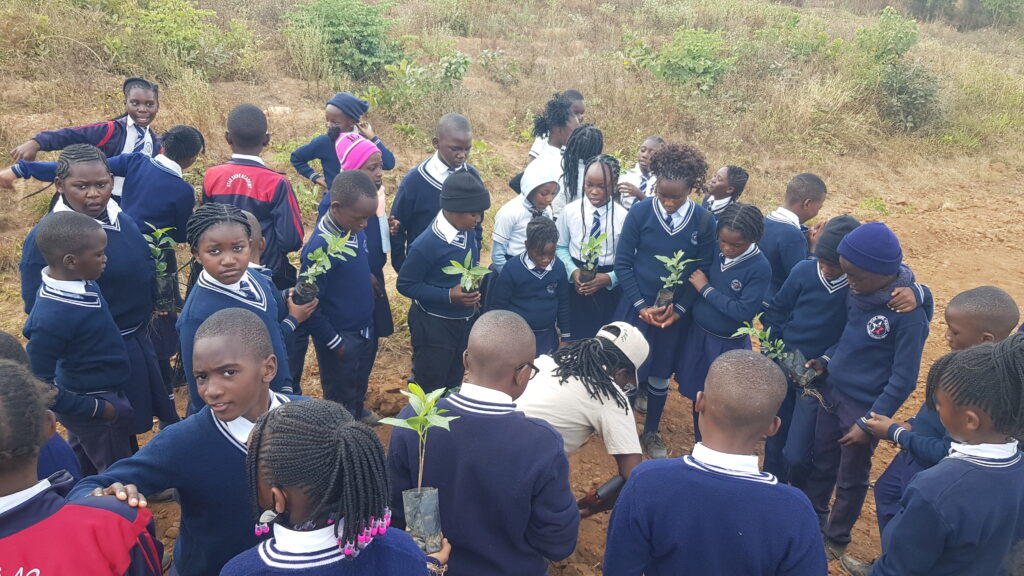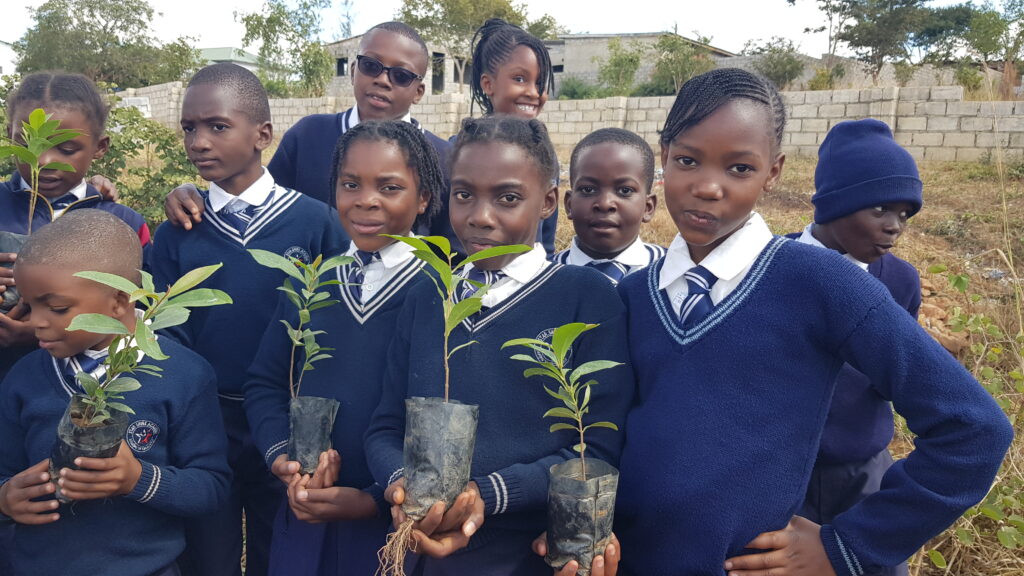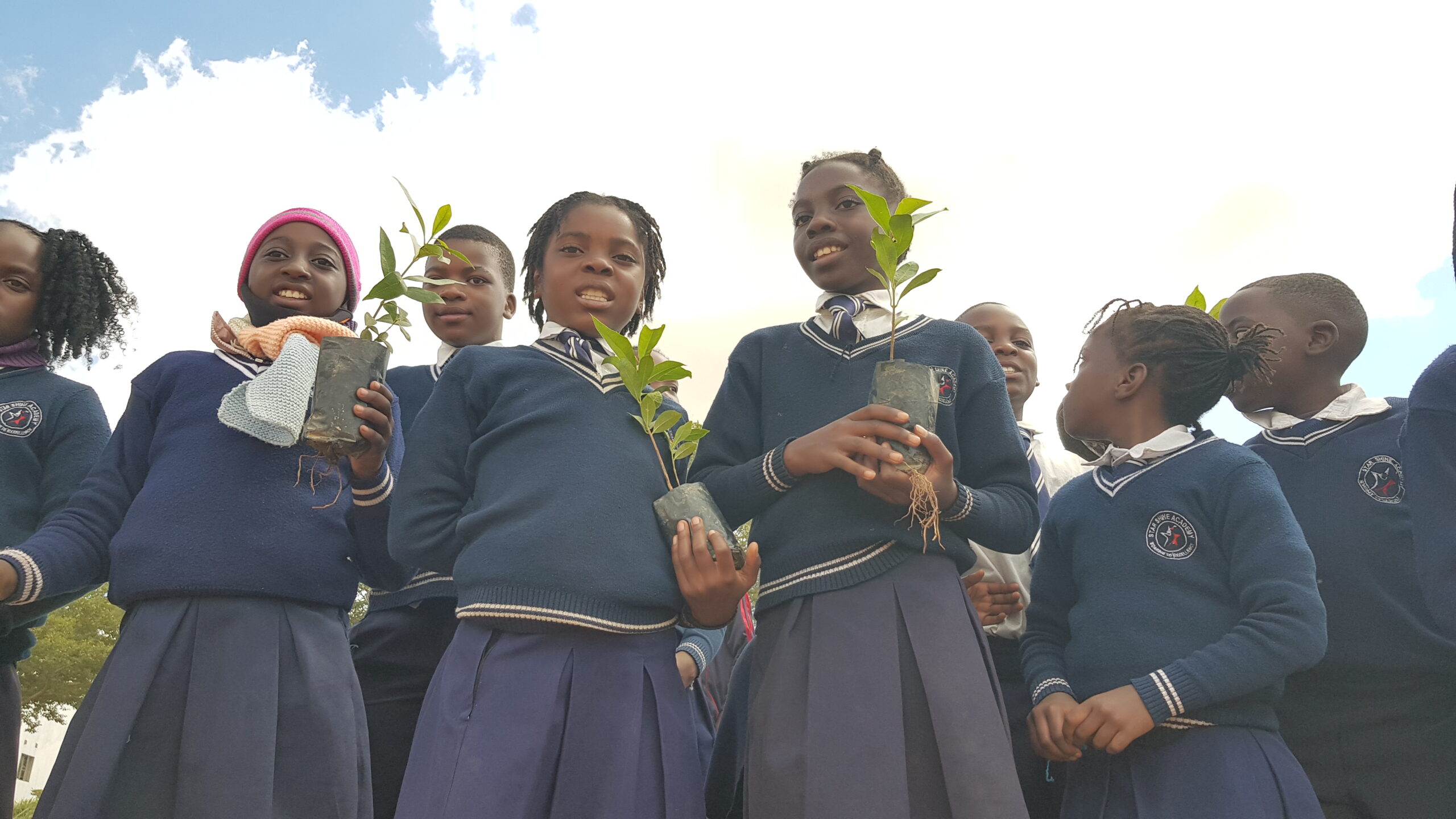We continued our mission to educate the next generation on environmental conservation, this time at Stashine Academy in Inqua Village, Chongwe District on the 3rd of July 2025.
This workshop marked one of the ten schools targeted in the Chongwe area for climate change awareness and tree planting exercises, a critical part of the broader Chongu Reforestation Project.
The day began with an interactive climate change workshop where students were engaged on the importance of planting trees and conserving nature. The team explained the realities of climate change and empowered the students with knowledge on how they can play a part in reducing its effects.
The session culminated in the planting of 25 Musiniga tree seedlings on the school grounds. The Musiniga tree (scientific name: Syzygium cumini, commonly known as Java plum or black plum) is a native species known for its popular fruit, loved by both children and adults in Zambia.
Beyond its fruit, the tree is a powerhouse of benefits. Once mature, reaching heights of up to 30 meters, it provides excellent shade with its dense foliage. The team took time to educate the students on its numerous nutritional and medicinal uses, which include:
- Nutritional Value: The fruit is rich in carbohydrates, phosphorus, and vitamins.
- Medicinal Properties: It is traditionally used to treat ailments including acne, black spots, diarrhea, chest pains, and stomach upsets. Studies have also shown it can help reduce blood pressure and control diabetes.
To ensure the knowledge was retained, the team asked students to recap what they had learned. One student, Joy, confidently presented the uses of the Musiniga tree.
“Good morning everyone. My name is Joy. I come from Stashine Academy and I’m [in grade] 5. I came here to present a plant called Musiniga and it’s used to get rid of pimples and such black spots. And also used for the cough and also stomach pains. If you have, you can also use this. So you can get one and plant it near your place… It helps control diabetes… It helps with shade.”
The Chongu Reforestation Project aims to restore native trees that have been heavily cut down for charcoal production while also building the capacity of villagers to take climate action through workshops, trainings, and meetings with traditional leaders and small-scale farmers.
This initiative is made possible by the generous support of The Pollination Project in the USA.
